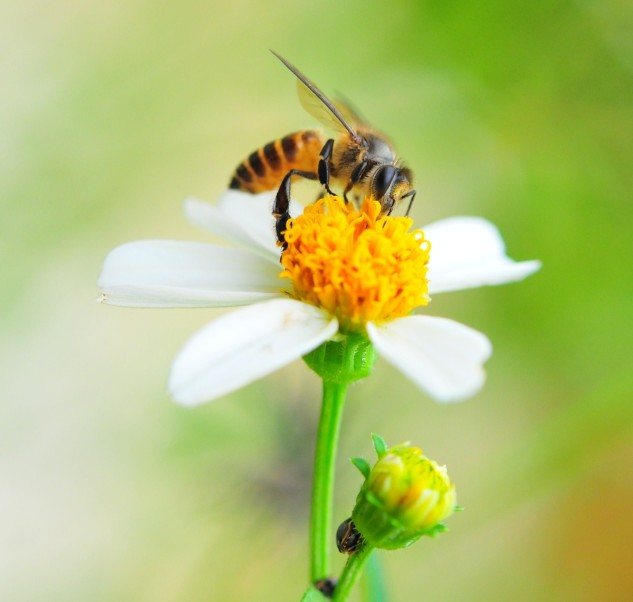Nest scouts, who search for new hive locations, were three times more likely to be nectar scouts when older.
尋找新蜂巢的筑巢蜂在年老時有三倍的可能性會成為尋蜜蜂。
To determine if there are differences between scouts and non scouts, researchers examined their brains to see which genes were active.
為了確定尋蜜蜂與保育蜂是否存在差異,研究人員檢查了它們的大腦,尋找哪些基因是活躍的。
What they found was surprising. There were large differences in over one thousand genes.
他們的發現出人意料。蜜蜂的上千種基因差異甚大。

Some of those genes are very similar to ones associated with human novelty seeking behavior.
其中一些基因與人類追求新奇行為相關的基因十分相似。
Scientists examined genes controlling dopamine signaling, which reinforces pleasure in humans.
科學家研究了控制多巴胺信號的基因,這種基因會增強人類的愉悅感。
In bees it works just the opposite; high dopamine reinforces aversion.
而該基因在蜜蜂體內的作用卻恰恰相反;多巴胺含量高會增加蜜蜂的厭惡感。
Bees with genes that made more dopamine receptors were non scouts, while those with low receptors tended to be scouts.
攜帶能夠分泌較高多巴胺感受器基因的蜜蜂為保育蜂,而那些產生較少感受器的蜜蜂則為尋蜜蜂。
譯文為可可英語翻譯,未經授權請勿轉載!











